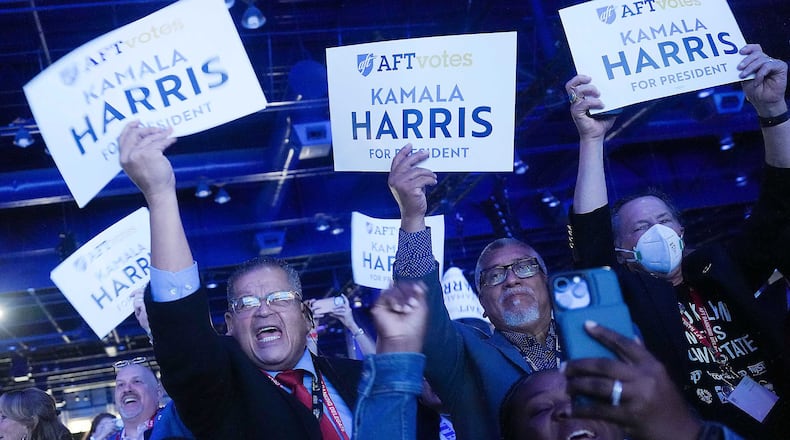The Democratic Party has long allied with national teacher unions, a relationship that has historically been mutually beneficial. The National Education Association and the American Federation of Teachers have provided significant financial and grassroots support, while the Democrats have championed education policy that aligns with union interests.
However, opposition to public school choice since the creation of the first charter schools more than 30 years ago and recent adoption of geopolitical policy positions suggest these organizations have strayed far beyond the mainstream of their original missions of protecting teachers and strengthening educational outcomes. The Democratic Party ought to reconsider its long-standing relationship.
Charter schools, which are publicly funded but independently run, have become an essential component of the educational landscape in many communities, especially those serving low-income and minority students. These schools often provide alternatives to underperforming traditional public schools, offering parents and students, most notably economically disadvantaged students, greater ability to have options within K-12 education.
The unions’ stance against charter schools often stems from a belief that these schools divert much-needed resources from traditional public schools and undermine unionized teaching positions. However, this view ignores the reality that many charter schools have demonstrated success in improving educational outcomes for disadvantaged students.
In fact, studies have shown that charter schools, particularly in urban areas, are narrowing the achievement gap between low-income students of color and more affluent peers. It can be argued that when a student leaves a traditional public school for a charter public school, not one dime leaves public education. Dollars simply follow the child to the public school of their choosing.
For a party that prides itself on championing the rights and opportunities of marginalized communities, continuing to side with education unions is a contradiction. The Democratic Party’s commitment to educational equity should compel it to support all public-school options that demonstrably benefit students. By standing with the unions on this issue, Democrats risk alienating a growing number of parents and voters who see charter schools as a vital lifeline for their children’s future.
Another troubling development is the increasing alignment of some teacher unions with anti-Israel activism. Such activism is far removed from the core mission of teacher unions, which should focus on advocating for the rights and welfare of educators and students. By adopting positions on the Israel-Palestine conflict, unions have alienated Jewish teachers, students and community members who feel targeted.
While unions play a key role in representing educators, the party must not allow itself to be held hostage to union positions that are increasingly out of step with the needs of students and the values of many voters. Instead, Democrats should seek to build a new educational coalition that includes parents, community leaders, and educators who are committed to improving public education in all its forms — traditional schools, charters, and innovative models.
This coalition should focus on policies that prioritize student outcomes, educational equity and the professional growth of teachers, rather than ideological battles that distract from the core mission of educating the next generation.
The Democratic Party must recognize that its alliance with national teacher unions, while historically beneficial, is becoming increasingly problematic. The unions’ opposition to public charter schools and their foray into divisive international politics are alienating key constituencies and undermining the party’s broader goals. By distancing itself from these positions, the Democratic Party can reaffirm its commitment to educational equity and build a more inclusive and forward-looking coalition.
Andrew Lewis is a national education and political consultant, former executive vice president of the Georgia Charter Schools Association and co-founder of Opus, a financial platform for charter schools, He has advocated for charter public schools for more than 20 years.
About the Author
Keep Reading
The Latest
Featured

